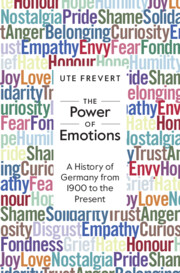Book contents
Summary
Football’s ‘summer fairy tale’ in 2006 gave Germans a reason to be proud, despite their national team being knocked out in the semi-final. This set the ball rolling once again: open-mindedness and hospitality went hand in hand with seas of black, red and gold flags. This chapter investigates how pride in one’s own country was almost out of the question after the crimes of the National Socialists. Pride shifted to the private sphere and became something individual: housewives were proud of keeping their apartments spotlessly clean, workers were proud of the quality that ‘Made in Germany’ stood for. When the Social Democratic Party launched its election campaign in 1972 with the slogan ‘Germans – we can be proud of our country’, Willy Brandt stressed that it referred to ‘pride in the results of our hard work’. Since the GDR claimed to have made a radical break with the national past, it did not have such a problem with pride. It wanted its citizens to be proud of the achievements of the ‘Socialist fatherland’, its antifascist pioneers and its relationship with the Soviet Union as brothers in arms.
Keywords
- Type
- Chapter
- Information
- The Power of EmotionsA History of Germany from 1900 to the Present, pp. 291 - 307Publisher: Cambridge University PressPrint publication year: 2023

